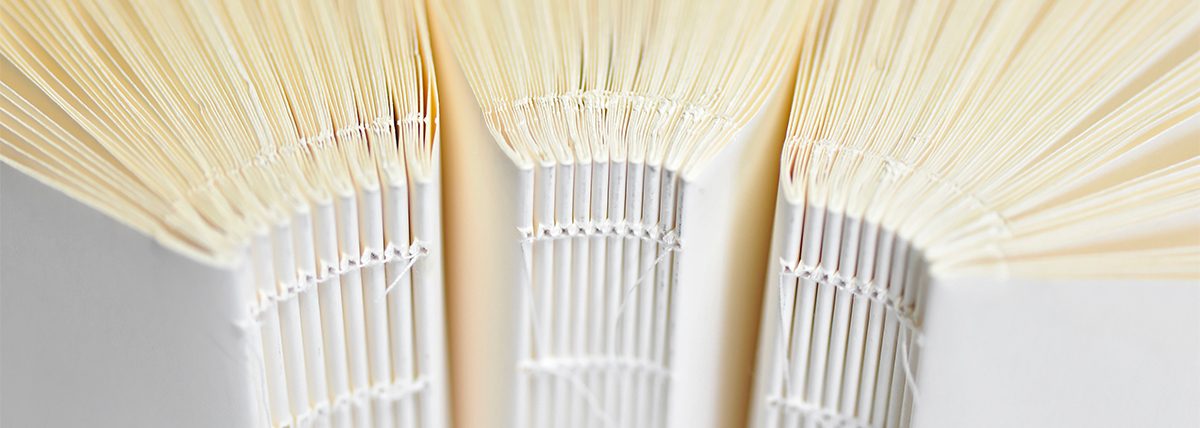The Escourbiac printing company and the Fondation des Treilles have created the “Prix Escourbiac – Fondation des Treilles”. This prize consists of a grant for the publication of a photographic book linked to the Mediterranean world. In January of each year, it is awarded by the jury for the Photography Prize.
Candidates
Applications are open to all professional photographers who have already exhibited or published their images, regardless of age or nationality.
The publication project must necessarily have the Mediterranean world as its theme.
Only photographers whose photographic and editorial project is already completed can apply.
Candidates cannot apply for the Escourbiac – Fondation des Treilles Prize and the Fondation des Treilles Photography Residency Prize in the same year.
Applications must be sent before October 1 of the current year.
The application file consists of :
- a form to complete online
- a file [in PDF format] containing your CV, a description of your project, and all the images and text from your work, to be sent to the following email address: prix.photo@fondationdestreilles.com The final model will be produced in collaboration with the Odyssée Editions.
All applications are evaluated by the jury, which designates a laureate.
The residence
The winner is welcomed on the Treilles estate for a period of 15 days to one month in March or April of the current year. Their accommodation and meals are paid for by the Foundation, which allow them to devote themself fully to their publication project. During their stay, they are accompanied by the publisher to finalize the work.
The book
The publishing and production costs of the book are entirely borne by the Odyssée publishing house and the Escourbiac printing company, which are also responsible for the communication and distribution of the book.
Each year, the book is presented during the opening week of the Rencontres Photographiques d’Arles (Arles photographic meetings).
The laureates over the years
Delphine Warin
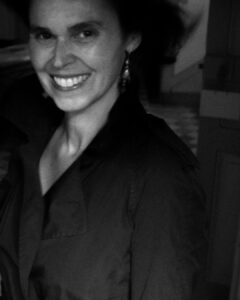 After studying Russian and theatre, Delphine Warin turned to photography by taking courses at the Center for Media Art at the American Center, then left for New York to study at the International Center of Photography. Back in Paris, she deepened her photographic research with a particular interest in portraiture, and while assisting Sarah Moon, she began personal research and produced subjects over the long term. She collaborates with the national and international press (Le Monde, Libération, l’Express, Le Point, etc.), exhibits works commissioned by institutions such as Fnac, AFAA and the Musée de Sceaux. She works for associations (Le Rire Médecin, La Traina), festivals (Berlioz Festival) and press agencies (AFP). She regularly teaches the portrait approach at the ESAV (the Higher School of Visual Arts) in Marrakech and is a member of the Divergence agency. She spends her life between Morocco and France.
After studying Russian and theatre, Delphine Warin turned to photography by taking courses at the Center for Media Art at the American Center, then left for New York to study at the International Center of Photography. Back in Paris, she deepened her photographic research with a particular interest in portraiture, and while assisting Sarah Moon, she began personal research and produced subjects over the long term. She collaborates with the national and international press (Le Monde, Libération, l’Express, Le Point, etc.), exhibits works commissioned by institutions such as Fnac, AFAA and the Musée de Sceaux. She works for associations (Le Rire Médecin, La Traina), festivals (Berlioz Festival) and press agencies (AFP). She regularly teaches the portrait approach at the ESAV (the Higher School of Visual Arts) in Marrakech and is a member of the Divergence agency. She spends her life between Morocco and France.
Her project
«Intimacy has always been at the heart of my photographic work. My approach is a trial and error. My priority is to show the unspeakable, to get to the point. I cannot imagine this approach other than with patience, respect for others and humanity. That’s why my relationship with the subject is just as important as the story being told. My experience has shown me that it is an encounter and given circumstances that allow the unexpected to be revealed. During my first encounter with Morocco, I was of course sensitive to the Moroccan soul, the simplicity in the relationship, the human quality, but I was immediately struck by this relationship to time, its slowness. Suspended, there is nothing but the present. The mystery of chance, “it’s luck that dances” a man I was photographing in a country souk told me one day. Forging a link, gaining the trust of the women and men I photograph, finding a point of contact: this is a priority for me, an emergency.
Here, I met Amazons from Fantasia, Miss Rose, craftswomen. And barbers, Sufi masters, charcoal burners: closed universes, where the latter are not used to receiving a photographer, especially a woman. A country where the Arab man is often in control, and rarely gets rid of his social armour. A more delicate approach, a challenge perhaps. »
Jeanne Taris
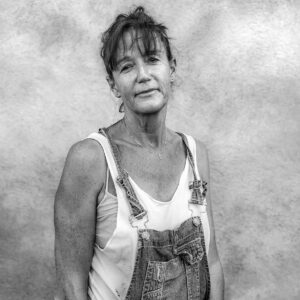
At 17, Jeanne Taris discovered photography. But she worked without sorting anything, printing anything, showing anything. She captured raw moments with atypical men and women with whom she built strong relationships. In 2015, noticed during a Leica meeting, she began a second life: she shared her work through long-term series, always in immersion. From Ivory Coast to the gypsy district of Perpignan, Jeanne Taris constructs step by step the sensitive story of moments in others, drawing a larger fresco.
Emerging talent Polka for the Zooms of the Salon de la Photo 2018, she won the Leica Galleries International Portfolio Award at the Voies Off Festival in Arles in 2018 and the Kuala Lumpur International Photoawards in 2019 and 2020. She is a finalist for the Grand Prix Albert-Khan 2020.
Her photos are published in Polka, 6 Mois, Vice, Washington Post, LFI magazine, Il Fotografo, News from Photografers and exhibited in museums and galleries in France and internationally (Italy, Malaysia, Spain, Scotland, New Zealand, Switzerland, Turkey, Morocco). She also exhibited her work on the occasion of the Nuit des images at the Musée de l’Elysée in Lausanne and at the Lambert Collection, Museum of Contemporary Art in Avignon. At the Rencontres d’Arles 2023, her work is presented in the Lumières des Saintes exhibition. In 2023, her works will be included in the Lambert Collection Museum of Contemporary Art in Avignon and in the Des Rencontres D’Arles collection.
Her project
The contemporary work of Jeanne Taris around the Gypsy pilgrimages of Saintes-Maries-de-la-Mer and Lourdes is a long-term work.
No image seems possible without deep intimacy, without inert time spent observing and creating a participatory observation close to a field investigation while carrying an assumed aesthetic commitment.
During processions and devotions, Jeanne Taris captures the emotion as close as possible to the skin, shows the tears and the sweat, the bodies which work and deform in the bubbling, the effervescence and the exaltation. It shows both the weight of the crowd which takes everything away but also the loneliness of each person’s feelings and passions. Following a regular presence over the years, with the same families, the experience of time profoundly shapes the photographic experience.
Each moment is completed over the years: the awakening and the torpor of the morning, the preparations and the meetings, the time of the procession, the parties and celebrations which extend into the night, the lateral operations which take place at this moment and whose range extends to infinity.
Life thus follows its always interrupted course, the images capture the theater of this life always starting again.
Francine Cathelain
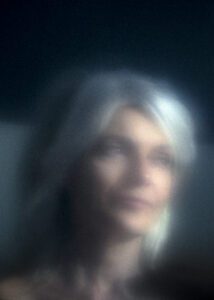 Arrived at the image through movement, Francine Cathelain is also a scriptwriter for the cinema, her work as an author is however resolutely oriented towards the fixed shot. That of the photographic medium. Her series, nourished by many travels and by intimate territories, are often thought for the book. They borrow from her cinematographic experience the work on light, rhythm, textures and a certain desire for narration.
Arrived at the image through movement, Francine Cathelain is also a scriptwriter for the cinema, her work as an author is however resolutely oriented towards the fixed shot. That of the photographic medium. Her series, nourished by many travels and by intimate territories, are often thought for the book. They borrow from her cinematographic experience the work on light, rhythm, textures and a certain desire for narration.
Her project : And I will let my eyes fly (provisional title)
Projected, a few years ago, into a solitary, intimate and singular experience, born from the encounter between a place, a moment and a particular state, in the heart of a remote South, her photographic book project wishes to share the story of this exploratory journey, imbued with the gift of presence possessed by certain Mediterranean territories, between mystery and plenitude, perceptible and impalpable, reality and fiction. Or rather imaginary. In this sense, this project hopes to invite everyone to make it their own.
A few words written recently watch over the memory of these salutary moments and will find their place in the body of the book, to the rhythm of a furtive dialogue with the images.
I lost it.
Exhausted in the folds of depths without return.
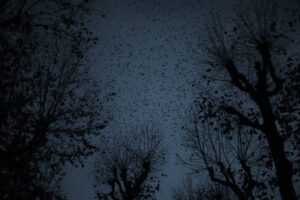 Afterwards, failing to do anything but walk.
Afterwards, failing to do anything but walk.
Caught up in the moment, with a shaky heart and diluted thoughts.
Crossing the air and pacing the wind. Far from the villages prostrate in the cold velvet of winter that the gusts of wind cannot cheer up. Hollow wanderings on wild paths. Everywhere the dark mountain crimped the horizon.
The senses are stretched, distended. Antigravity of the body. Let yourself be brushed by almost sacred veils without believing but perceiving, perhaps, a celestial architecture, a delicate asylum.
The sky is a cradle.
Exhale fears and go beyond the shadow.

